Sometimes people will purchase an RV and not give a second thought to needing a special license to drive or tow their RV. They get so excited about starting their RV life that it may be the last thing on their mind. Besides, they already have a regular driver’s license, and that’s good enough. Right?
Not exactly. Some states require a special license to drive an RV, and others don’t. Additionally, the requirements vary from state to state, which can make this topic feel a bit confusing.
In this article, we’re bringing you the state-by-state requirements for RV driver’s licenses. Dive in to see what you can expect from your state of residence!
Disclaimer: Licensing requirements are subject to change over time. We do our best to keep our articles up-to-date, but be sure to double-check with your state licensing agency to verify the information you find in this post.
Do You Need A Special License To Drive An RV?
Some states require a special license to drive an RV while others don’t. If you do need one, the requirements are based on the weight and/or length of your RV. You can browse the state-by-state requirements here. However, we also recommend that you contact your state’s Department of Licensing or Department of Motor Vehicles to find out if one is required and what type you will need. In some cases, the requirements may have changed since we published this article.
Texas is one of the states that requires a special license to drive or tow an RV. The type of license you’ll need is based on your RV’s gross vehicle weight rating (GVWR). For example, if you want to drive a motorhome with a GVWR at or over 26,000 pounds, you will need to have a Class A or Class B driver’s license. Keep in mind that when they use Class A or Class B, they do NOT mean the type of motorhome you have. It’s just a classification for the type of license you must have.
Types Of Special Licenses That May Be Required To Drive An RV
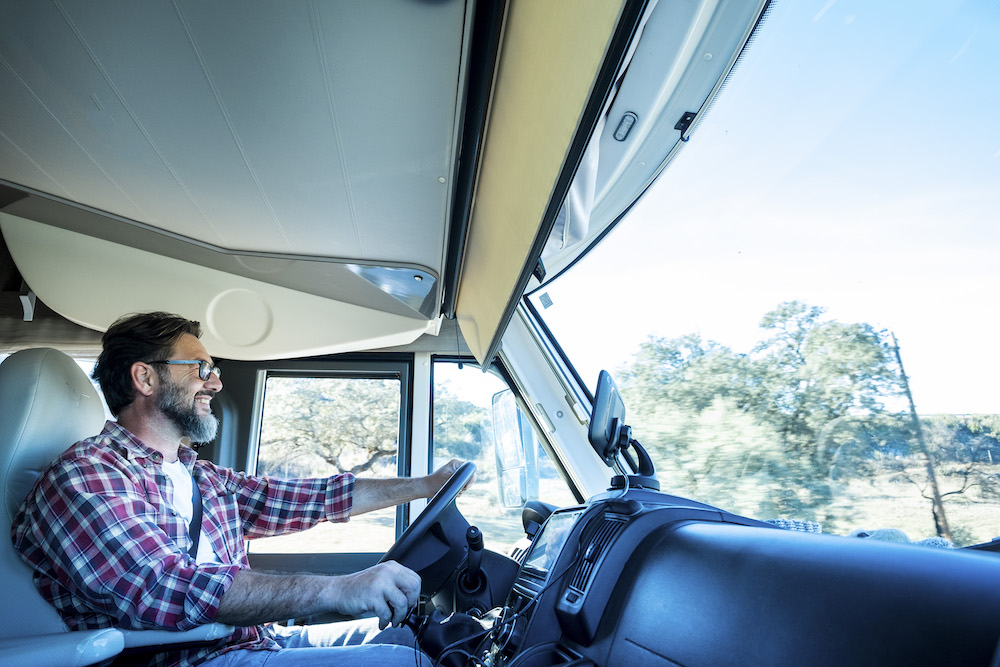
There are a couple of types of licenses you may be required to have to drive your RV. They are:
- A Commercial Driver’s License
- A non-commercial driver’s license
- An endorsement to your regular driver’s license.
A commercial driver’s license (CDL) is one type that all commercial vehicle drivers must have. Only a select few states require RVers to take a test and get their CDL before driving their RV.
Non-commercial driver’s licenses and added endorsements are what states like Texas require RVers to have. These are only needed if you are towing or driving a vehicle that meets or exceeds a specified GVWR or Gross Combined Weight Rating (GCWR). It may also include RVs that meet or exceed a certain length.
Let’s take a look at states where special types of licenses may be required to drive your RV.
States That Have Special License Requirements for Some RVs
Do you need a special license to drive an RV in every state? The answer is, “No.”
Here are the states that require special licenses for some RVs. Once you see your state, keep reading through the next section to find out what the requirements are.
- Alabama
- Arkansas
- California
- Hawaii
- Illinois
- Kansas
- Maryland (including the territory of Washington, D.C.)
- Michigan
- Nevada
- New Mexico
- New York
- North Carolina
- Pennsylvania
- South Carolina
- Texas
- Wisconsin
- Wyoming
RV Driver’s License Requirements By State
Let’s take a more detailed look at what kinds of licenses are required by the states listed above. Please be aware that the information we’ll present below may change after publication of this article. We suggest you also do a little back-up digging just in case your state has changed their RV licensing requirements or does not use clear descriptions of what type of license you may need. Watch for specific language like “any vehicle…” or “any combination of vehicles…” This typically (but not always) means not just commercial vehicles but non-commercial vehicles also (your RV included).
Arkansas:
Any vehicle over 26,000 pounds requires a CDL in this state. Here is a link to the Arkansas Driver’s License Key for more information.
California:
California requires a non-commercial Class A license for travel trailers at or above 10,000 GVWR and 5th wheels at or above 15,000 GVWR. A non-commercial Class B license is required for a single RV at or below 10,000 GVWR and any RV between 40 and 45 feet long.
Here is a link to learn more about California RV license requirements.
Hawaii:
A Class A CDL is required for any combination of vehicles with gross combination weight rating (GCWR) of 26,001 or more pounds, provided the GVWR of the vehicle(s) being towed is more than 10,000 pounds.
A Class B CDL is required for a single vehicle with a GVWR of 26,001 or more pounds, or any such vehicle towing another vehicle not in excess of 10,000 pounds GVWR.
Here is a link to a FAQ page for Hawaii RV CDL licensing requirements.
Illinois:
No CDL is required for RVs. However, operators of a second division vehicle with a gross motor vehicle weight of 10,001 pounds or more are required to carry a Medical Examiner’s Certificate with them at all times while operating the vehicle. In addition, drivers are required to maintain a file containing a written test verification, road test verification and other records. A second division vehicle is: designed to carry more than 10 persons; or designed or used for living quarters (example: RV); or designed for pulling or carrying freight or cargo; or a first division vehicle remodeled for use as a second division vehicle (example: self-build bus used as RV).
Here is a link to Illinois licensing requirements.
Kansas:
You need a Class B CDL for a single vehicle over 26,000 pounds or a Class A CDL for multiple vehicles with a combined weight above 26,000 pounds.
Here is a link to the Kansas CDL requirements page.
Maryland:
Your license must reflect either the appropriate weight class for the vehicle you are operating or must have the appropriate motor home/recreational vehicle restriction code noted on your license.
A Class A non-commercial license driver’s license authorizes you to drive combinations of Class G trailer (over 10,000 lbs.) vehicles (GCWR 26,001 lbs.).
A Class B non-commercial driver’s license allows you to drive any single vehicle with a GVWR of 26,001 pounds or more. It also allows pulling a trailer under 10,000 lbs.
A Class C non-commercial driver’s license authorizes you to drive any vehicle or combination of vehicles with a GVWR of less than 26,001 pounds.
Here is a link to Maryland RV licensing information.
Michigan:
Anyone wanting to tow a recreational double (a truck towing a fifth-wheel towing another trailer) must get a Double R Endorsement added to their regular driver’s license.
Here is a link for Michigan licensing requirements.
Nevada:
RV and trailer owners need a non-commercial Class A or B license to drive vehicles 26,001 pounds or heavier. An Endorsement J is needed to tow a vehicle over 10,000 GVWR. If the combination of the towing vehicle and the towed vehicle(s) exceed 26,001 pounds, a Class A, non-commercial license is required.
Here is a link to Nevada licensing requirements.
New Mexico:
New Mexico drivers with an RV weighing over 26,000 pounds will require a Class E endorsement on their driver’s license. Here is a link to a New Mexico licensing webpage with more information, scroll to Section G to learn more and get your application for a Class E endorsement.
New York:
Drivers need a Class D license. If the GVWR of your RV is over 26,000 pounds, you will need Endorsement R added to your Class D license.
Here is a link to learn more about New York license codes.
North Carolina:
A non-commercial Class A license is required for any combination of vehicles with a GVWR of over 10,000 pounds.
A non-commercial Class B license is required for a single vehicle with a GVWR of 26,001 pounds or more or tows another vehicle with a GVWR of 10,000 pounds or less.
A non-commercial Class C license is required if your single vehicle has a GVWR of less than 26,001 pounds or tows a vehicle that has a combined GVWR of less than 26,001 pounds.
Here is a link to learn more about North Carolina’s non-commercial licenses.
Pennsylvania:
A Class A non-commercial license is required for any combination of vehicles with a GVWR of 26,001 pounds or more.
A Class B non-commercial license is required to operate any single vehicle with a GVWR in excess of 26,000 pounds or any vehicle towing a trailer having a GVWR of less than 10,000 pounds.
Here is a link to learn more about Pennsylvania license types.
South Carolina:
For a single vehicle with a GVWR of more than 26,000 pounds, you will need a Class E non-commercial license.
A Class F non-commercial license is required to drive a combination of vehicles weighing more than 26,000 pounds.
Here is a link to learn more about South Carolina non-commercial licenses.
Texas:
You’ll need a Class A non-commercial license for driving a single vehicle or combination of vehicles with a GVWR of 26,001 pounds or more. The towed vehicle must be in excess of 10,000 pounds.
A Class B non-commercial license is required for driving a single vehicle with a GVWR of 26,001 pounds or a single vehicle with a GVWR of 26,001 pounds or more that is towing another vehicle that does not exceed 10,000 pounds.
Here is a link to learn more about Texas non-commercial licenses.
Washington, D.C. territory:
A Group A CDL is required for any vehicle with a trailer with two or more axles including any combination of vehicles with a GVWR greater than 26,000 lbs., provided that the GVWR rating of the towed vehicle is in excess of 10,000 lbs.
A Group B CDL is required for any single vehicle with a GVWR greater than 26,000 lbs.
Here is a link to learn more about Washington, D.C. licensing requirements.
Wisconsin:
Wisconsin may require RV drivers to obtain a CDL for operating RVs over 45 feet long. Learn more about Wisconsin licensing requirements here.
Wyoming:
If your combination of vehicles has a GVWR of 26,001 pounds or more, and the vehicle being towed is 10,001 pounds or more, you will need a Class A CDL.
A Class B CDL is required for a single vehicle weighing 26,001 pounds or more.
Here is a link to Wyoming CDL information and requirements.
States With No Special RV Driver’s License Requirements
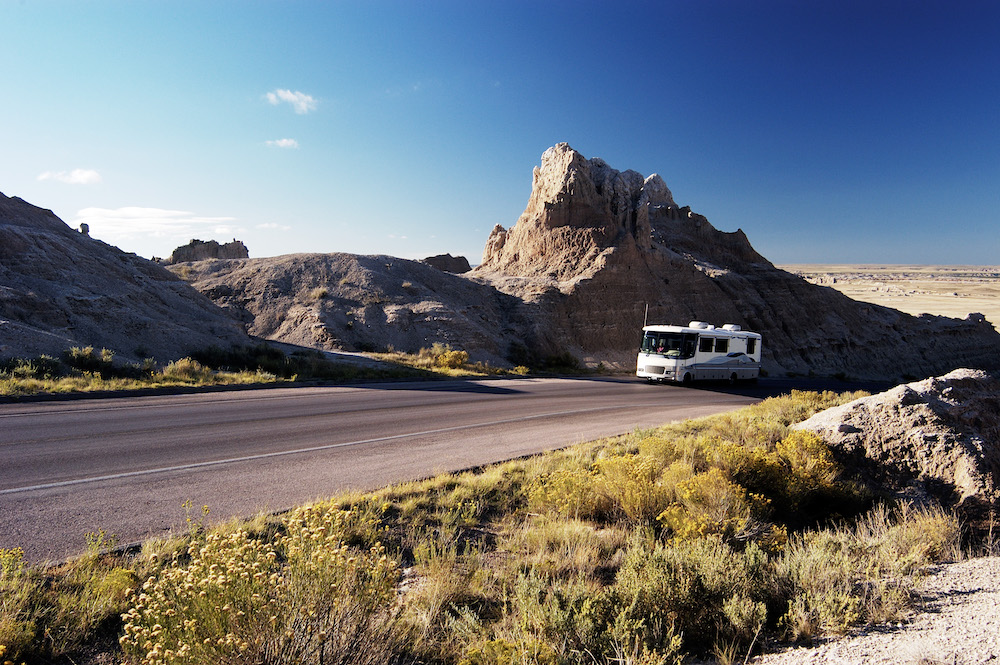
Some, but not all, of the following states, do not require a special driver’s license unless your RV is over 26,000 pounds. Most RVs do not have a GVWR over 26,000 pounds so most of you will not have to have a special RV driver’s license.
At the time of publication, we have done our best to check every state’s website to find out specific exemptions for RVs over 26,000 pounds. If you are from one of these states, and your RV has a GVWR over 26,000 pounds, please double-check to see if you are still exempt from needing a special RV driver’s license or not.
- Alabama
- Alaska
- Arizona
- Colorado
- Delaware
- Florida
- Georgia
- Idaho
- Illinois
- Indiana
- Iowa
- Kentucky
- Louisiana
- Maine
- Massachusetts
- Minnesota
- Mississippi
- Missouri
- Montana
- Nebraska
- New Hampshire
- New Jersey
- North Dakota
- Ohio
- Oklahoma
- Oregon
- Rhode Island
- South Dakota – Note: If you are a full-time RVer, you must have a physical residential address or complete a residency affidavit if you use a mail forwarding service to be eligible for a South Dakota Driver’s License.
- Tennessee
- Utah
- Vermont
- Virginia
- Washington
- West Virginia
In Conclusion
If you have been in your state for a while, you probably know whether or not you need a special RV driver’s license. But for those of you who have changed your domicile and need to know if your RV qualifies you to have a special license or endorsement to your license, we hope the above state-by-state information breaks down what you need.
As thorough as this information is, we cannot stress enough to please double-check with your state driver’s licensing agency just to be sure you’ll be traveling with the correct license.
Once you find out, get your license and have a great time in your RV! Happy travels!
Was this post helpful? Pin it to Pinterest!
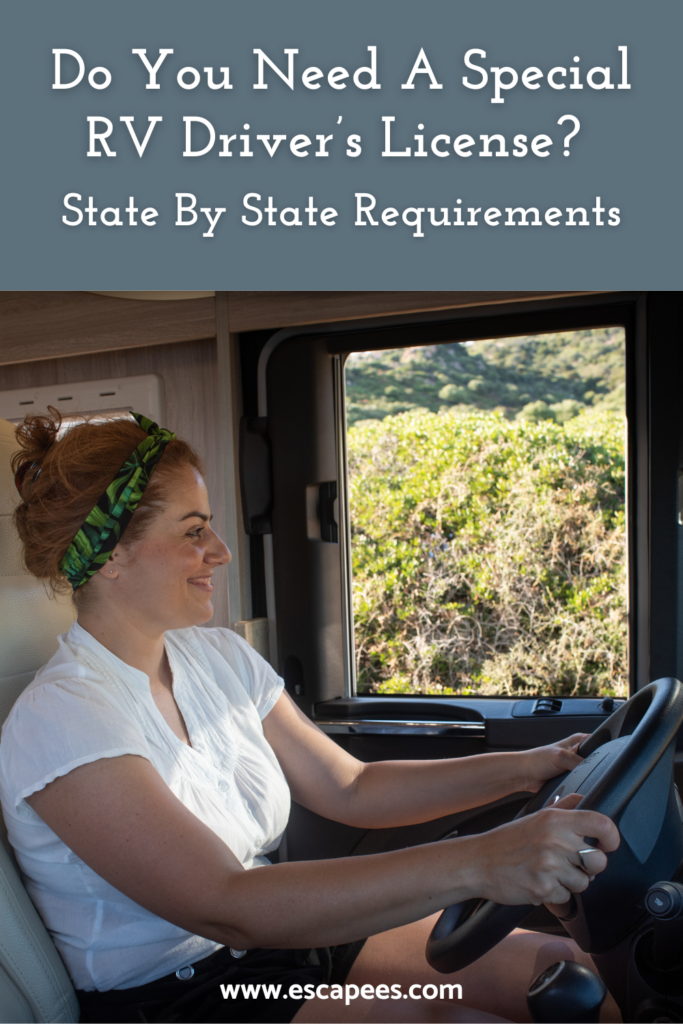

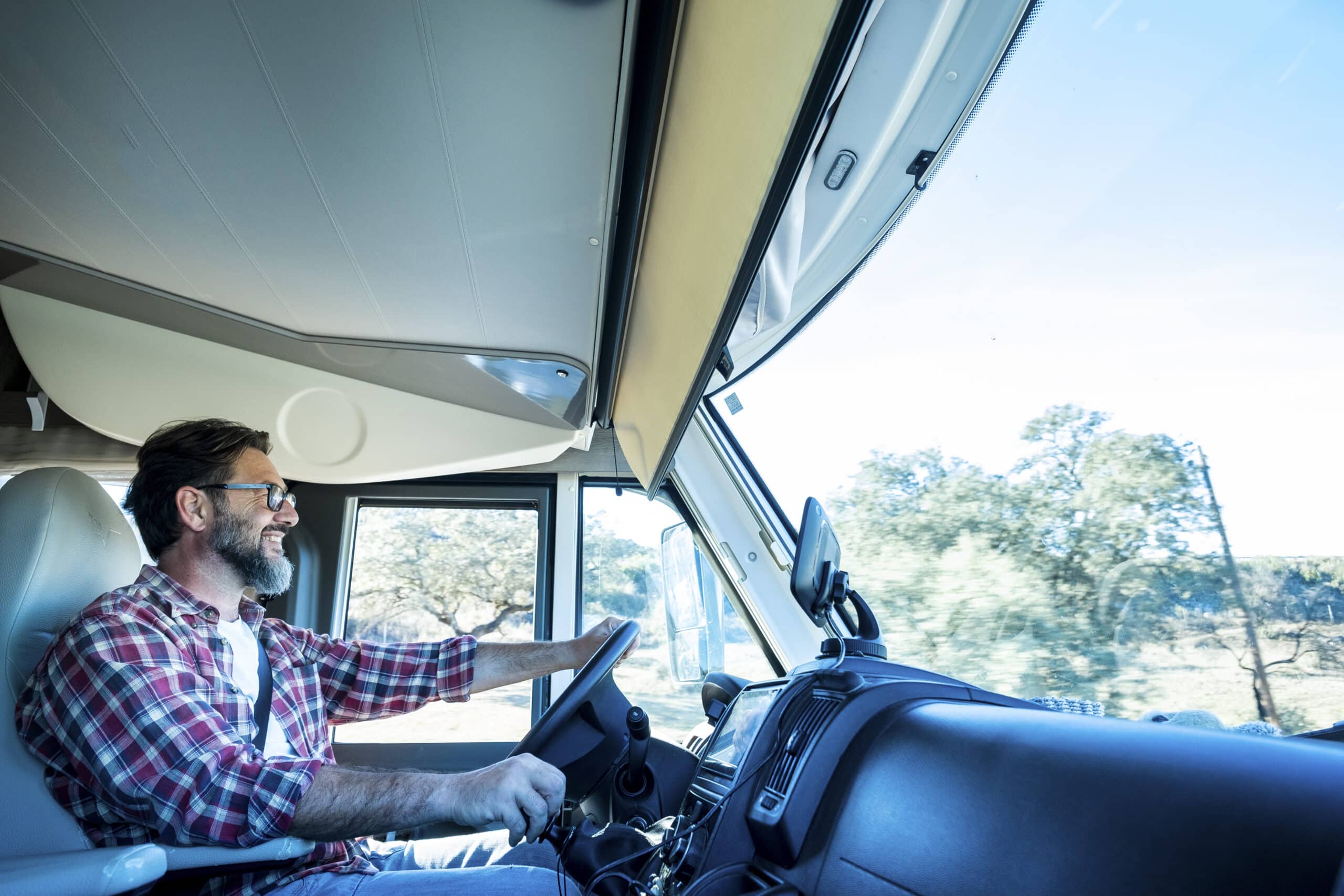
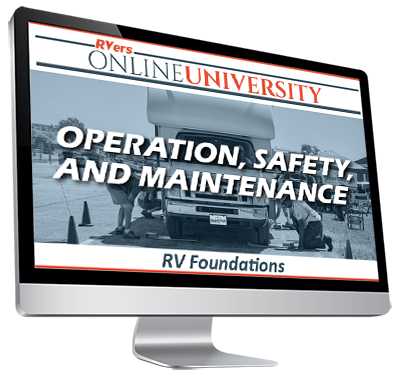



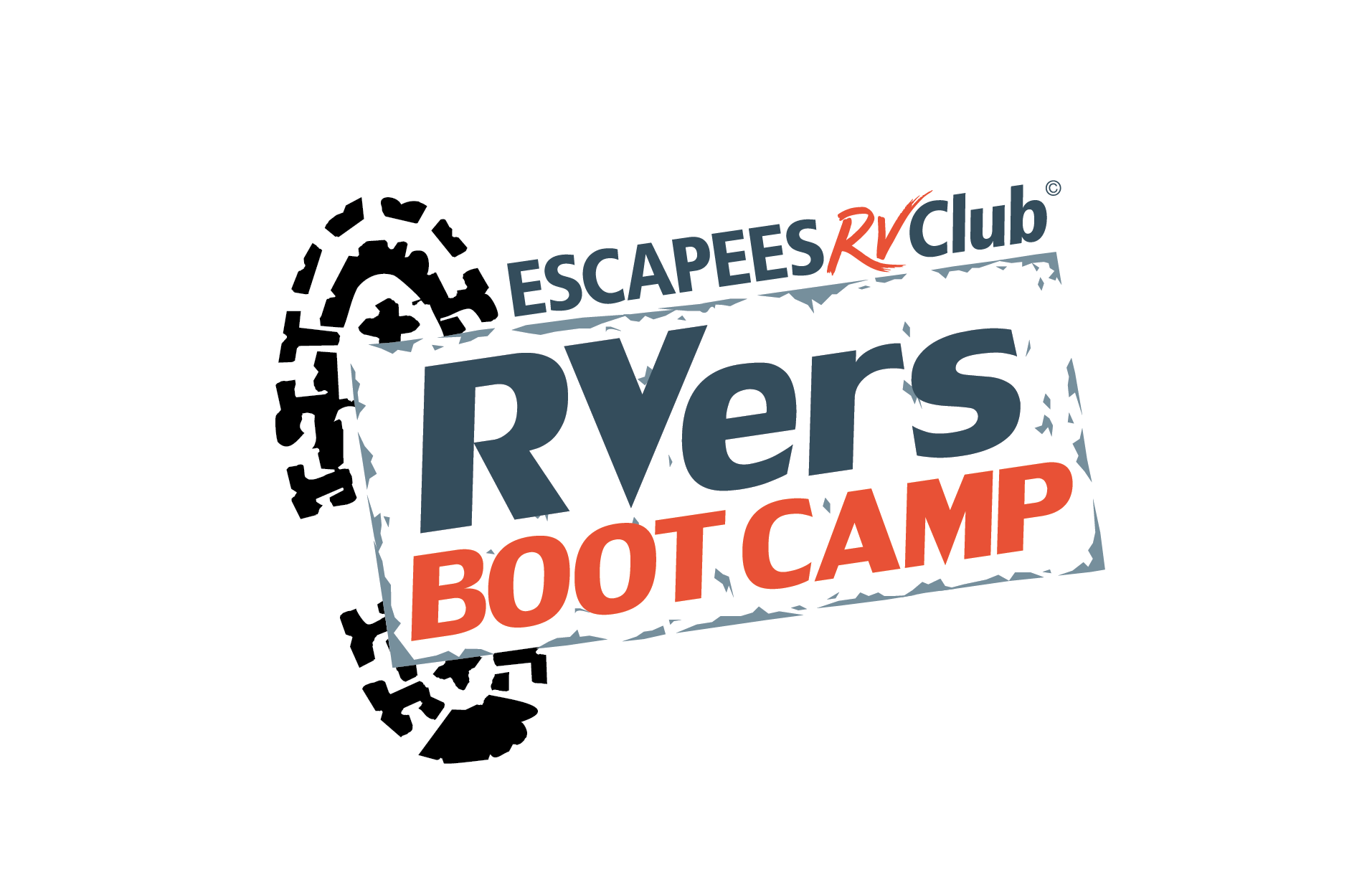


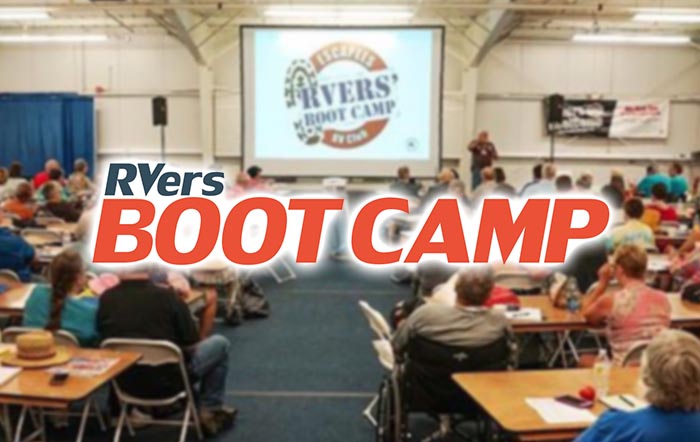
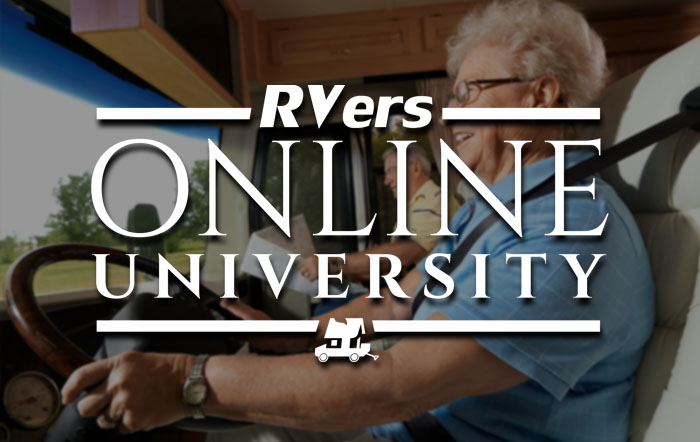

8 Responses
If you have a license that is valid in your state of domicile, is that license good in all states or do you need to get a license that is good say in CA if you plan to visit there
You only need a valid license issued from your state of domicile.
The article leaves out two important points. One is clarification of what states require an air brake endorsement. That isn’t an automatic thing even when getting a Class A or B license. The other thing would be to clarify that the requirements apply to the state you are licensed in, not the state you are driving in.
Thank you! We’ll include that in our next update.
I live in Kentucky fixing to buy a 1989 Coachmen Catalina 27 to be going to Canada in would i need to obtain an cdl license?
Hi Jonni! Thanks for asking. If you’re traveling to Canada, you will need to find out the licensing requirements for Canada. You can find out border crossing information here: https://www.cbsa-asfc.gc.ca/
If you have regular driver license for the state of Texas can you drive a tamdum motor home thru all us state
Hi Robert! If you’re referring to a tag axle motorhome, the weight of your rig still determines the kind of driver license you need to have to drive it in Texas. Then, check with each state you are traveling into to be sure you won’t need a special license just to travel through (there are a couple that have been sticklers about it). We don’t want you to get a ticket!